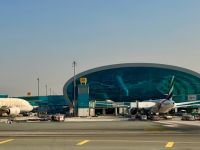ALGIERS, July 8 (AFP) - The Organisation of Petroleum Exporting Countries (OPEC) said Saturday it would not increase oil production for the time being, stressing that its main aim was to achieve market stability.
Algeria's Energy Minister Chakib Khelil said OPEC would not increase production levels unless there was a "demand or expressed need".
Venezuelan Energy and Mines Minister Ali Rodriguez, currently OPEC president, told a meeting of OPEC representatives the organisation wanted to achieve balance between producers and clients, especially in major industrial countries.
Khelil earlier told a press conference: "We are waiting for the impact of the increase which was recently agreed on to see if it's necessary to proceed with further increases."
Last month OPEC members agreed to a modest production hike of 708,000 barrels per day (bpd) and to pump more oil into the market if the average reference basket of OPEC crudes remained above 28 dollars a barrel for 20 consecutive trading days.
"We will increase only if there is a demand, if the needs are expressed," Khelil said at a preparatory meeting for the OPEC summit in Caracas in September.
"We are ready to respond, but we do not want any new increases that will trigger an uncontrollable drop in prices," he added.
"The deliveries are taking up to 40 days to arrive on the market. This is not the moment when we can assess the impact of the agreed on increase," the Algerian said.
Khelil also said that OPEC member Saudi Arabia, which had suggested that its output be increased by 500,000 bpd, was "in agreement with us".
Khelil also recalled that non-members of OPEC had placed additional supplies on the market. If new needs arose, OPEC would reconvene to examine the situation.
OPEC President Rodriguez later told the OPEC meeting: "Market stability is our main objective."
Citing pressure from industrialised nations to preserve their interests, he said: "We have to avoid volatility by seeking a point of equilibrium that is good enough for development of the industrialised and developing nations." On Friday, Khelil said Algeria favoured crude oil prices at around 25 dollars a barrel and greater discipline and cohesion among producers.
Questioned by the official APS news agency on Saudi's plan to unilaterally raise production, Khelil said he had not been consulted and he did not think Saudi Arabia "can decide unilaterally to raise its quota".
The Saudi comments were probably more "speculation than a firm decision", he added.
Rodriguez also said on Friday the Saudi proposal was based on pure speculation and that OPEC decisions "are taken by consensus and after concertated agreement among all members of the organisation."
Meanwhile Laurent Fabius, France's economic and finance minister, warned Saturday in Japan that continuing high-level oil prices might weaken the current global economic performance.
"The sole worry is connected with the high price of oil which, if it continues, could mean a blow to good results," Fabius said, following a meeting of finance ministers of the G7 group of leading industrial nations.
The oil price rose Friday above the 30-dollar threshold on the New York forward market.
The price of light sweet crude for delivery in August rose by 29 cents to 30.28 dollars, having lost 68 cents to 29.99 dollars the previous day.
ao/da/sw
© 2000 Mena Report (www.menareport.com)






